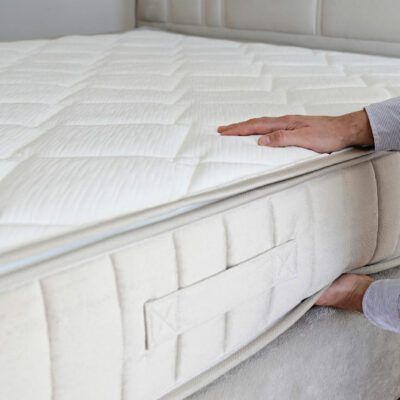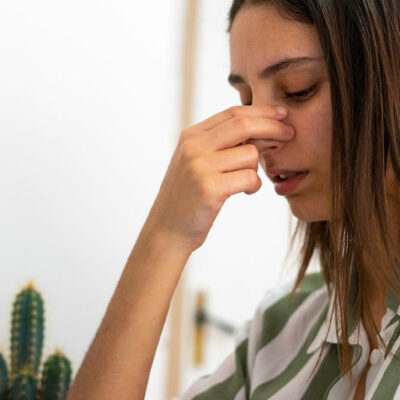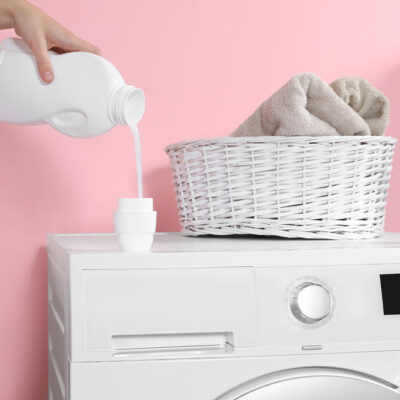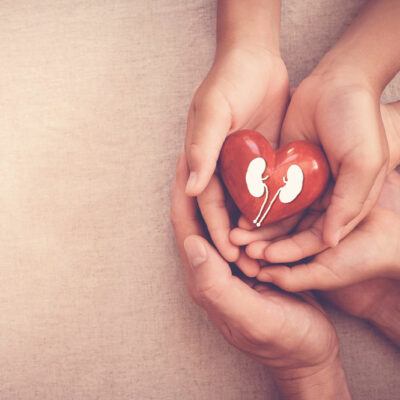Avoid These 12 Things to Sleep Better

Getting good, uninterrupted sleep at night is incredibly important for one’s health. The quality of sleep can affect one’s mood, energy levels, and overall health. Sleep quality is determined by what one does during the day, which includes physical activity, the food and drinks they have, and mental stimulation. One should also avoid a few things before bedtime to get good rest. So, here are a few things to avoid before bed that can disrupt sleep:
Using smartphones at bedtime
Multiple studies have suggested a link between using electronic devices such as smartphones, tabs, and TVs before bedtime and sleeplessness at night. So, one must avoid staring at these screens before bed. The blue light emitted by electronic devices interferes with the production of melatonin, hampering a healthy sleep cycle. So, one can try keeping all electronic devices outside the bedroom an hour before bedtime to get quality sleep.
Coffee at late hours
Usually, one cup of coffee contains 95 milligrams of caffeine, which can keep a person alert for a few hours before its effects wear off. So, even if one has a single cup of coffee later in the day or in the evening, its effect can last for about 10 hours. So, one can opt for a glass of warm milk as an alternative to coffee to avoid disrupting their sleep.
Spicy food before bed
A study conducted in 2019 reported that spicy foods might have a negative impact on a healthy sleep cycle. These foods can cause acid reflux, heartburn, and indigestion, making it difficult to lie down and get rest. Further, heartburn may worsen sleep apnea and raise the body temperature, making it incredibly difficult to sleep comfortably. As a result, doctors suggest avoiding spicy foods a few hours before bedtime.
Heavy dinner
At times, a full stomach or bladder can result in poor sleep quality. On the one hand, frequent urination disrupts sleep, while on the other, a heavy meal can increase the risk of heartburn, causing discomfort. Further, heartburn can worsen one’s sleep apnea.
Staying up late
When one stays up late due to work, they may end up breaking their healthy sleep habits and patterns. Not getting the required number of hours of restful sleep affects the quality of time spent awake, making one feel groggy and tired throughout the day. So, one should try to get between 7 to 9 hours of uninterrupted sleep every night to stay alert and active during the day.
Chocolate before bed
Unfortunately, chocolates also contain caffeine as part of their main ingredient—cocoa. Further, chocolates also contain a stimulant called theobromine, which increases the heart rate and causes sleeplessness. So, experts suggest opting for a light, caffeine-free snack before bedtime. Fruits such as oranges, pineapples, and bananas can also be great alternatives to chocolate to avoid affecting one’s sleep quality. The fruits boost melatonin production and help one maintain a healthy sleep cycle.
Intense workout at night
Although doctors recommend working out for 30 minutes every day to maintain optimum health, exercising right before bedtime may affect one’s sleep cycle. Vigorous physical activity raises body temperature, blood pressure, and heart rate, making it difficult to rest after working out. So, one should exercise earlier in the day to avoid affecting their sleep.
Irregular sleep schedule
The natural body clock or circadian rhythm determines the time one should go to sleep. If bedtime keeps changing every day, it can affect the circadian rhythm and affect sleep quality. Sticking to a strict sleeping schedule, i.e., sleeping at the same time every day, makes it easy to get uninterrupted rest.
High room temperature
Although temperature preferences vary, most people can sleep better when the room temperature is cooler, say between 60 and 70 degrees Fahrenheit. This is because the body temperature drops at night to conserve energy, and lower temperatures allow people to cover themselves without feeling too hot. So, one should avoid sleeping in a hot room if they are unable to get a good night’s sleep.
Letting pets into the bed
When people let their pets sleep on the bed, they may get woken up repeatedly through the night. A 2018 study suggested that pets like dogs stay active 20% of the night, increasing the owner’s chances of being awake at night during the dog’s active period. Additionally, dander on the bed could increase the risk of allergies and breathing difficulties. So, one should try to make their pets sleep in a different room or on a separate bed in the same room.
Nightime shower
If one usually showers in the mornings but suddenly starts taking showers at night, it messes with the sleep schedule. This is because people feel fresh after a shower, lowering the chances of getting good quality sleep. Additionally, sleeping with wet hair dampens the pillows and sheets, creating the perfect environment for mold and bacteria growth. So, experts suggest taking a warm shower at least 2 hours before bedtime to help the body relax and prepare for sleep.
Stressful activities
Stress is one of the most common causes of insomnia. A stressful situation can elevate cortisol levels and those of other stress hormones, making one unable to sleep. Additionally, emotions like anger can make one constantly replay scenarios or thoughts at bedtime and affect their ability to fall asleep. So, one should engage in serious decision-making and heavy thoughts earlier in the day to get enough rest at night.
In addition to avoiding the above-mentioned activities before bedtime, one can try listening to peaceful music, creating a restful environment, and limiting daytime. If one experiences sleepless nights for a long time, they should consult a healthcare professional to identify the cause and get appropriate treatment.








